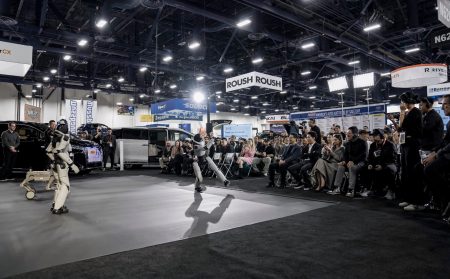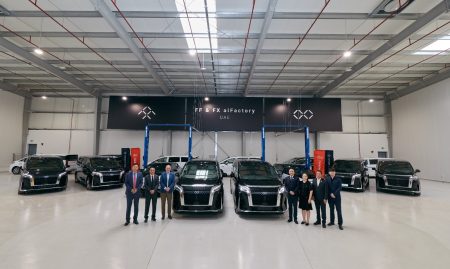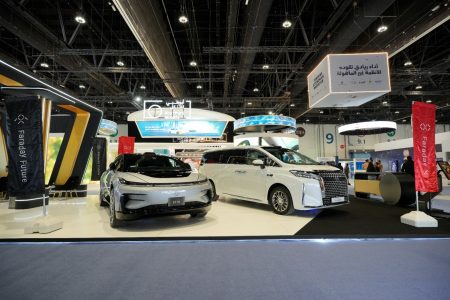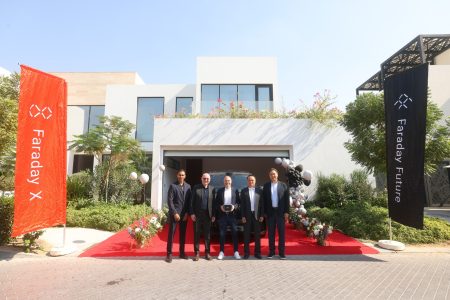Summarize this content to 2000 words in 6 paragraphs in Arabic Unlock the Editor’s Digest for freeRoula Khalaf, Editor of the FT, selects her favourite stories in this weekly newsletter.Taiwan Semiconductor Manufacturing Company’s pledge to spend an extra $100bn on advanced manufacturing plants in the US will do little to help the country restore its global lead in chipmaking, according to Pat Gelsinger, who was forced out as chief executive of Intel late last year.His comments come less than a month after the White House hailed the investment from TSMC, the world’s largest chip manufacturer, as an important milestone in efforts to bring production of the most advanced semiconductors back on to US soil.“If you don’t have R&D in the US, you will not have semiconductor leadership in the US,” Gelsinger said. “All of the R&D work of TSMC is in Taiwan, and they haven’t made any announcements to move that.”The former Intel chief added, however, that President Donald Trump’s tariff threats had at least been “incrementally beneficial” for the US by giving chip manufacturers like TSMC more incentive to locate their facilities in the country.The Trump administration has leaned heavily on TSMC amid doubts about Intel’s ability to regain the global manufacturing lead it lost to the Taiwanese company a decade ago. Gelsinger’s departure late last year was widely seen as a repudiation by the company of his complex turnaround plan, which included trying to rebuild Intel’s manufacturing base. His successor Lip-Bu Tan, appointed earlier this month, has yet to set out his strategy.The former Intel chief executive would not comment on whether he had fallen out with Intel’s directors over strategy, but indicated he had lost their confidence less than four years into his five-year plan.“I wasn’t done with the five-plus years when the board made a directional change,” he said.TSMC has said that the only development work it plans to carry out it in the US will be on the process technology it already has in production, and that its core research and development will remain in Taiwan.“Unless you’re designing the next-generation transistor technology in the US, you do not have leadership in the US,” said Gelsinger.He was speaking in an interview this week after becoming a partner at Playground Global, a Silicon Valley venture capital firm that specialises in “deep tech” investments, including in fields like quantum computing and new chip making technologies.Despite losing out in the cutting-edge process technology used in chip manufacturing, Gelsinger said the US still had a global edge in many advanced technologies that are likely to determine future leadership in artificial intelligence. He also brushed off suggestions that Chinese AI company DeepSeek, which shocked US technology experts and investors with its low-cost technology earlier this year, had posed a serious challenge to American companies.“DeepSeek was good engineering, it wasn’t core innovations. It wasn’t major breakthroughs,” he said.Start-ups backed by Playground include xLight, whose advanced lasers could play a part in future generations of lithography needed to make chips. Other investments include PsiQuantum, the first quantum computing company that has embarked on building a large-scale quantum machine, and d-Matrix, one of a number of start-ups trying to leapfrog Nvidia in making the chips needed to run AI systems, a task known as inference.While at Intel, Gelsinger failed to make up ground against Nvidia in AI chips, though he said this week that new technologies were needed to bring AI into the mainstream.“AI, as exciting as it is, is much too expensive,” he said. “We have to have dramatic reductions in the cost of inference for it to be truly deployed in every aspect of humanity.”
rewrite this title in Arabic TSMC’s $100bn pledge to Trump will not revive US chipmaking, says ex-Intel chief
مقالات ذات صلة
مال واعمال
مواضيع رائجة
النشرة البريدية
اشترك للحصول على اخر الأخبار لحظة بلحظة الى بريدك الإلكتروني.
© 2026 جلوب تايم لاين. جميع الحقوق محفوظة.








